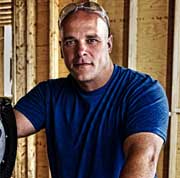Is your home ready to have a heat recovery system installed? How will you know either way? If it is ready, how should you go about choosing the right MVHR unit? Can you install one by yourself, or should you leave it up to the professionals? We are going to answer all those questions and more about installing heat recovery systems next.
Is the Property a Good Fit for an MVHR System?
There is no one-size-fits-all rule when it comes to heat recovery units, but there is certainly one for every home. However, the property must be inspected and measured by expert hands first, before deciding on which MVHR unit would be sufficient to do the job required of it. Primary considerations while choosing an MVHR unit should be regarding the systems:
- Performance or rate of heat recovery
- Dimensions in respect to the property’s dimensions
- Proper orientation, which is essential to allow for maximum efficiency
- Customizable settings and other options
- The heat exchanger used inside the system
The only requirement which the building must be ready to provide is insulation. It needs to be airtight for a heat recovery system and a boiler to do their respective jobs properly. Irrespective of what you may read on the internet, this applies to areas with or without a high breeze.
Can You Install a Heat Recovery System by Yourself?
Unless you have professional training that enables you to do so, never attempt to install a heat recovery system on your own. Not only can it damage the system and the amateur homeowner trying to install it, but the attempt will most likely void any warranty that came from the product’s OEM as well.
What Can You Expect from a Heat Recovery System?
If you manage to choose a good product adequate for the building and work with heat recovery installation pros to get it set up in the way that it should be, expect the following benefits:
- Lowered electricity bills (reduced heating needs)
- A greener home with a smaller carbon footprint
- Constant surge of fresh air preventing any chances of excess CO2 accumulation
- Healthier indoor air quality and humidity control
- Constant elimination of damp and moist indoor air conditions
- Lowered instances of allergies
- Lowered chances of a break-in as keeping windows open is no longer a necessity
- Lowered chances of viral, fungal, or bacterial germs from circulating inside
- Better, standardized heating and the consequent absence of cold spots
- Lowered chances of mould and mildew growth
- The boiler lasts longer than it would otherwise because it does not have to work as hard
Last Words
It never hurts to take the time necessary and know the technology that powers mechanical ventilation and heat recovery systems, but that is not a necessity. Just get to know the basics of maintenance and make sure you don’t ignore the important steps. That is pretty much all it takes to keep your home feeling warm and smelling healthy during the cold winter months.











